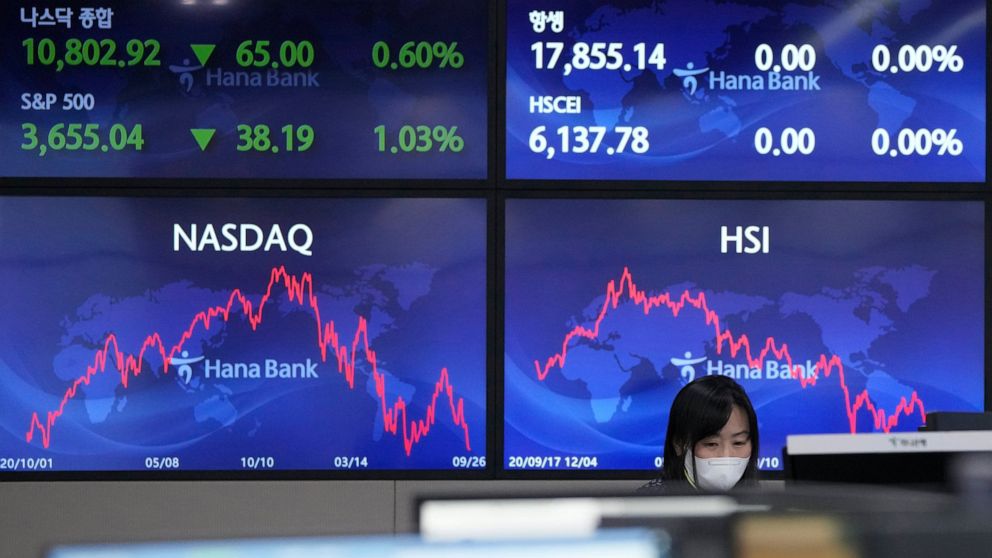Asian stocks were mostly higher on Tuesday after heavy selling on Wall Street put the Dow Jones Industrial Average into what’s known as a bear market.
U.S. futures and oil prices gained. Tokyo, Sydney and Shanghai advanced while Hong Kong declined.
The week started out with a bout of selling amid an extended slump for many markets. The benchmark S&P 500 is down more than 7% in September. But buying kicked in as investors awaited a slew of updates on the U.S. economy.
Tokyo’s Nikkei 225 index picked up 0.5% to 26,571.87 and the S&P/ASX 200 added 0.4% to 6,496.20. In Seoul, the Kospi rebounded from earlier losses, edging 0.1% higher to 2,223.86.
Hong Kong’s Hang Seng lost 0.2% to 17,816.77. The Shanghai Composite index jumped 1.4% to 3,092.76 after China’s central bank on Tuesday moved to maintain cash flow for banks by buying securities from commercial banks, with an agreement to sell them back in the future.
The official Xinhua News Agency said the People’s Bank of China carried out 175 billion yuan (about $24.7 billion) in reverse repos “to maintain liquidity in the banking system.”
Global stocks have been sagging under concerns over stubbornly hot inflation and the risk that central banks could trigger recessions as they try to cool high prices for everything from food to clothing.
Investors have been particularly focusing on the Federal Reserve and its aggressive interest rate hikes. But volatility in currency markets has further roiled markets.
The British pound dropped to an all-time low against the dollar on Monday and investors continued to dump British government bonds in displeasure over a sweeping tax cut plan announced in London last week.
The Japanese yen edged toward 145 to the dollar early Tuesday. Last week, the Bank of Japan intervened in the market as the yen slipped past 145, gaining a brief reprieve. But the dollar’s surge against other currencies is putting pressure on the BOJ and other central banks, especially in developing economies facing growing costs for repaying foreign loans.
The pound was at $1.0788, up from $1.0686 late Monday. The dollar bought 144.29 yen, down from 144.65 yen, and the euro rose to 96.48 cents from 96.10 cents.
Companies are nearing the close of the third quarter and with the next round of earnings reports investors will get a better sense of how companies are dealing with persistent inflation.
Several economic reports are on tap for this week that will give more details on consumer spending, the jobs…
Click Here to Read the Full Original Article at ABC News: Business…

